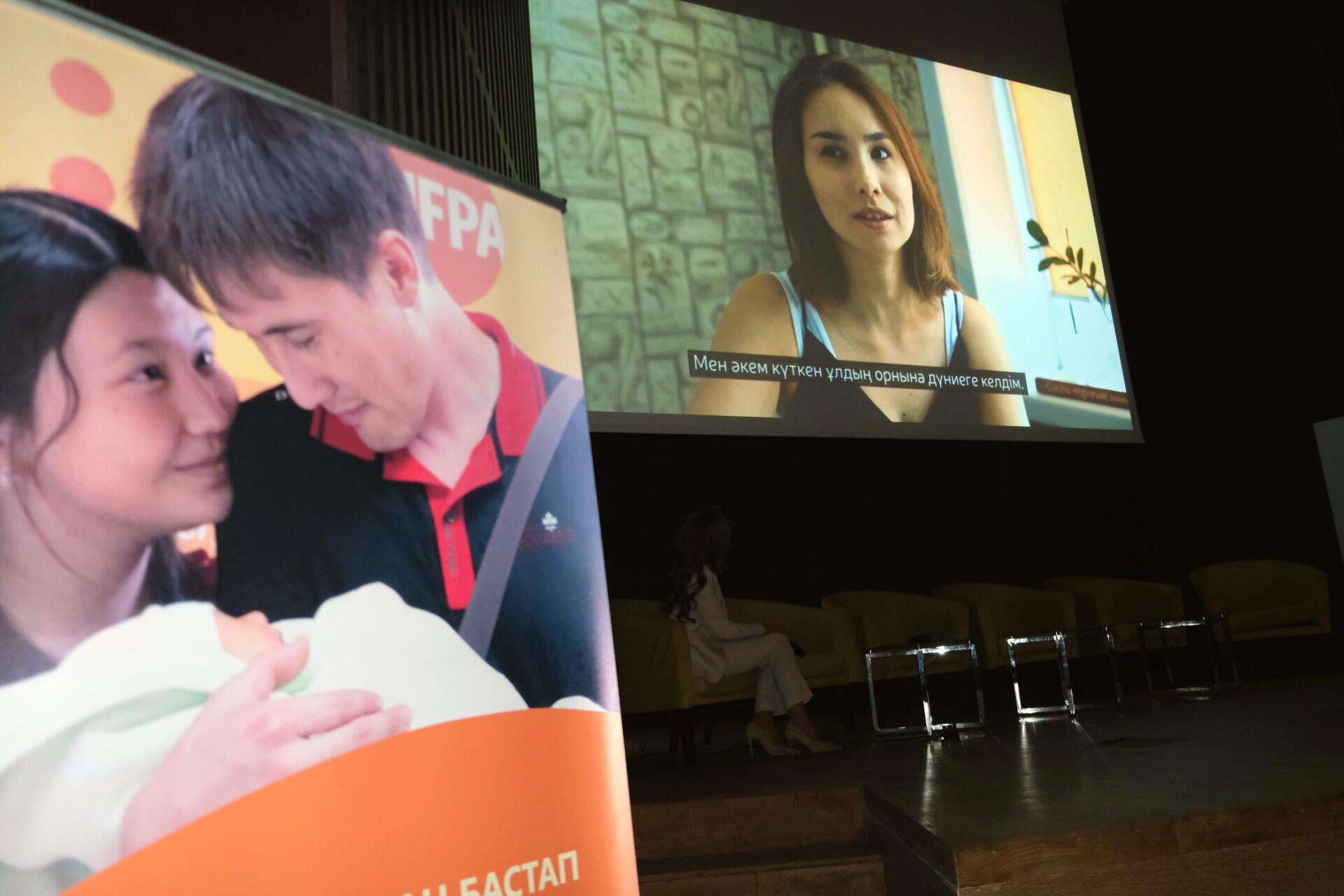Interesting fact:
- Currently there are 75400 women and girls carrying names «Ulbolsyn» and variations thereof
- Over half of them (53.6%) live in rural areas
- There are 294 variations of names with a similar meaning
- Southern region of Kazakhstan has the highest prevalence of names containing the root “Ul” (“boy”) and other names similar in meaning (over 2/3 of all women and girls in the country)
- Out of 75400 women with such special names only 203 gave similar names to their daughters
- In general, there has been a downward trend in the number of women and girls with such names over the past 3 decades (from 1990 to 2019 – from 13,803 человек (in 1990-1999) down to 12,264 people (2010-2019)
11 October, 2019, Nur-Sultan - UNFPA and “E.Quality Talks” of Nazarbayev University have held public talks on girls’ empowerment and showed a trailer for future documentary film “Qyzbolsyn” (Kaz.“May it be a Girl”) to mark International Day of the Girl 2019, themed “GirlForce: Unscripted and Unstoppable”. The participants of the meeting included gender equality advocates, media influencers, journalists, diplomatic community and others.
“Qyzbolsyn” documentary, being made by Kazakhstan’s famous filmmaker Katerina Suvorova and singer, activist, voice of UNFPA in Kazakhstan Akmarzhan Kusherbayeva (KALIYA), aims to explore the lives of women and girls named at birth “Ulbolsyn” (“May it be a Boy”) meaning the preference for a son at birth of a child. Such a tradition is not unique to Kazakhstan and exists in other countries of Central Asia and various regions of the world as well.
“Our film gives an opportunity to hear the voices of women who, perhaps, have never been asked about this. Their answer is very important and interesting to us, no matter what this answer is like. Because these names are the essence of the lives of all of is as women of Central Asia,” said filmmaker and creator of “Qyzbolsyn” documentary Katerina Suvorova.
International Day of the Girl, celebrated since 2012, aims to highlight and address the needs and challenges girls face, while promoting girls' empowerment and the fulfillment of their human rights. Today, girls’ movements are tackling issues like unequal access to education, violence based on gender, issues of self-esteem and others. Girls are breaking boundaries and barriers posed by stereotypes and exclusion, including those directed at children with disabilities and those living in marginalized communities.
“Our future will be increasingly more digital and centered around information technologies. If we don’t re-visit the way we look at traditionally “male” or “female” professions, hobbies, lifestyles and other walks of life and don’t promote girls’ access to education, we risk failing girls, wasting their talents and failing societies, too,” said President of Republican Union “Kazakhstan’s Federation of Educational and Sports Robotics “KazRobotics” Aizhan Zhekeyeva.
In many countries, girls and boys are valued differently and have unequal life opportunities. Stereotypically, girls are often prepared to be homemakers, while boys are expected to be providers for their future families. Such beliefs and stereotypes affect girls more because they limit their opportunities for self-fulfillment and lead to lower self-esteem.
“Access to reproductive health and rights is one of the biggest contributors to gender equality. When a woman or a girl can plan her family, she can plan the rest of her life. Protecting and promoting her reproductive rights – including the right to decide whether, how many and when to have children – is essential to ensuring her freedom to participate more fully and equally in society,” said Special Adviser of UNFPA Regional Director for Eastern Europe and Central Asia Pedro Pablo Villanueva. - The agreement that reproductive health and the empowerment of women are intertwined, and that both are necessary for the advancement of society was made 25 years ago at the milestone International Conference on Population and Development in Cairo, known in short as ICPD. We hope that Qyzbolsyn will grow into a larger project within which everyone can make a contribution towards promoting gender equality and girls’ opportunities.”
In November of this year, UNFPA and the Governments of Kenya and Denmark are co-convening the Nairobi Summit on ICPD25. This high-level conference aims to mobilize the political will and financial commitments to finally and fully implement the ICPD Programme of Action adopted 25 years ago. These commitments will be centred around achieving zero unmet need for family planning information and services, zero preventable maternal deaths, and zero sexual and gender-based violence and harmful practices against women and girls.
E.Quality club- a student organization at Nazarbayev University that aims to raise awareness around issues of gender and sexual inequality. It seeks to promote gender equality by educating the community through talks, discussions and debates.


